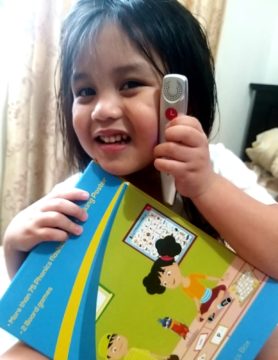
Understanding Your Child Better
June 28, 2022
Setting Limits & Boundaries with Children
September 26, 2022Parenting is meant to be an enjoyable and educational process. Parenting can provide you with endless and limitless joy as you watch your children grow up. However, parenting comes with its own challenges, trials, and hurdles. It definitely is a learning experience. One such hurdle and challenge that most parents mustovercome, and tackle is ‘focus’. A large majority of children struggle with focus early on in their academic careers, and there are a myriad of steps you can take to improve their focus and attention span.
Most children are unaware of the effects that come with focus issues and can become rather confused when it is time for them to go into a time-out, or are grounded. Focus related issues can cause and lead to a myriad of problems later on in the child’s life. That does not mean that your child is a bad child or a failure. In fact, learning what the issues are, and dealing with them in the right manner can help them grow as a person.
Trouble focusing can be either a long-term or short-term challenge. Regardless, it makes learning and growing a more difficult and challenging task than it needs to be. It also impacts the child’s everyday life and seeps into their day-to-day activities. It may not always be possible to change the circumstances and conditions that make focusing a difficult job for your child, but you can aid your child in cutting through the things that may be a distraction and thus, help them focus better. If staying focused is difficult for your child, try these strategies:

- Jump Right Into The Job At Hand:
The longer you put off a task or work that must be done, the harder it can be to come back to it and focus on that task. This applies in the case of projects and work for school, and around the house. This does not mean that your child has to do everything at once. To make this easier, try breaking up the task at hand into smaller parts and chunks. What is important is that they don’t delay getting started!
- Limit The Number Of Instructions:
If your child struggles to keep focus, it can be very difficult for them to listen to instructions, remember them, and follow the instructions and directions that you have given them. The goal is to not overwhelm and overload them with directions and instructions that are one too many for them to handle; instead to ease them into the task.
For example, when it’s time for your child to do their homework, you may tell your child to pick up and bring their assignment book, bring out the materials that are required to finish the homework, and then to begin doing their homework. And if that is proving to be too much for your child to focus on, then try breaking each of the instructions and directions you gave them into single steps.
- Set A Time Limit On Tasks & Objectives:
Knowing that there is a timer and a limit to how long they have to maintain their focus and concentration may make it easier for them to ‘hang in there’. You can also set a start and end point for how long or how much they have to work before they can take a break. Once this works, you can start increasing the time, little by little as their focus and concentration improves and gets better.
- Be Mindful:
Being mindful means being considerate, paying attention and focusing. Research has shown that practicing mindfulness can improve their behavior, manners, and their ability to focus on their activities and work in school.
One method to improving your child’s mindfulness is to simply sit quietly, practicing breathing exercises. Even something as simple and easy as breathing in and out prior to class and school can be very helpful.
- Be Open With Your Children:
There are some kids who need total and absolute silence in order to work and focus. Others are able to focus better when surrounded by some sort of noise. That is why it is so important to communicate with your kids about what works, and talk to them. Maybe your child wants to study with music on. You will never know unless you ask them yourself. Be open and talk to them about what works best for them.
- Redirect Attention & Focus Back To The Task At Hand:
Even when using the various focus techniques, you might still find your children getting distracted by a near infinite amount of variables that could distract them or take their attention away from the task at hand. That is why you will need to use strategies to get their attention back once they’ve drifted. You can try coming up with a signal when you feel your child’s attention drifting and their mind wandering.

There are a variety of strategies, techniques, and methods you can employ to help your child better their focus and attention span. Struggling with their focus or any other skill may hinder your child’s self-confidence. So, be sure to compliment them and let them know you acknowledge the effort they are putting in when you see them try and make the effort. Even point out the smaller improvements and changes they make; all while letting them know that they have potential to get better.
Keep books for babies around from their early days. Take time out every day to read to them. Reading infant story books together is a great bonding experience and helps increase attention span of babies. Do some fun math activities together, or any reading or online activities forbabies.
In addition to their challenges, remember to talk about their strengths. Celebrate their wins, in regard to their focus and other areas – small or big. When your child begins to understand and realize they’re good at it, they will build up confidence and thus, further improve.




